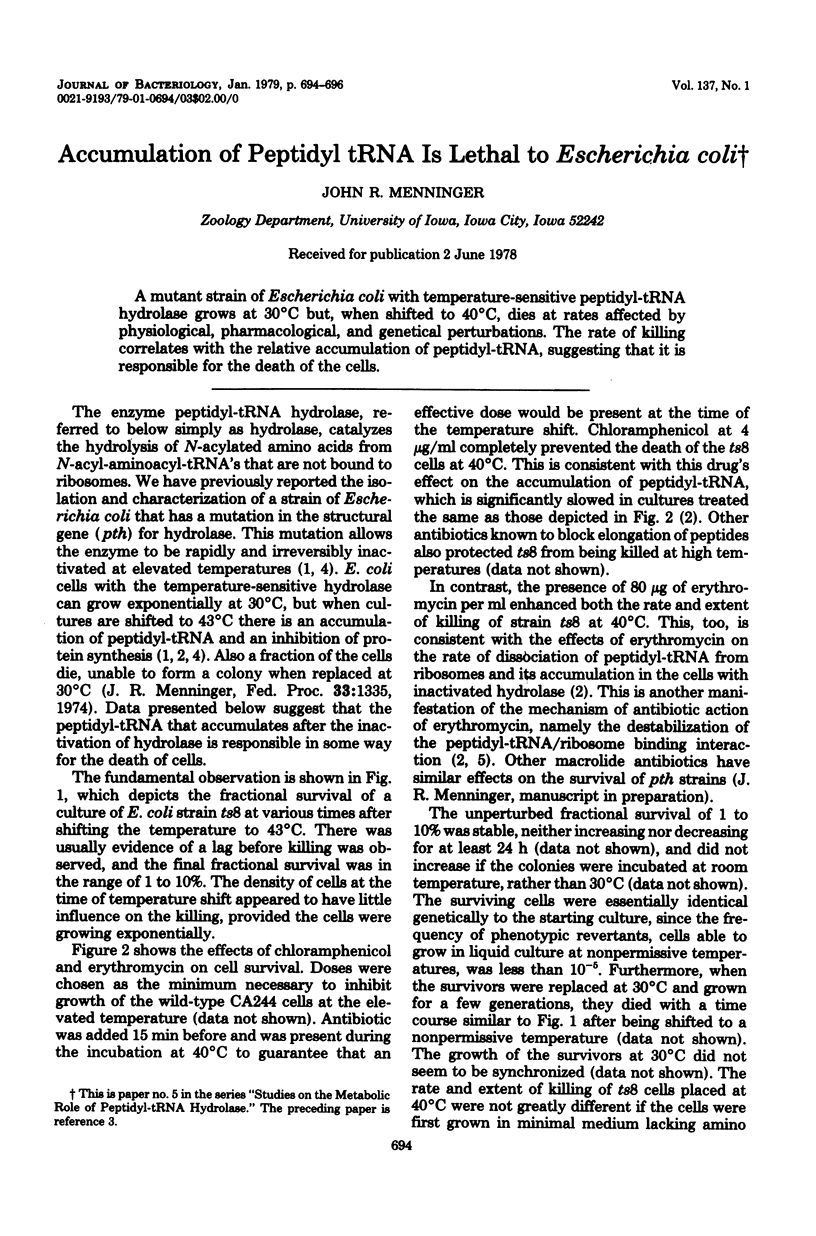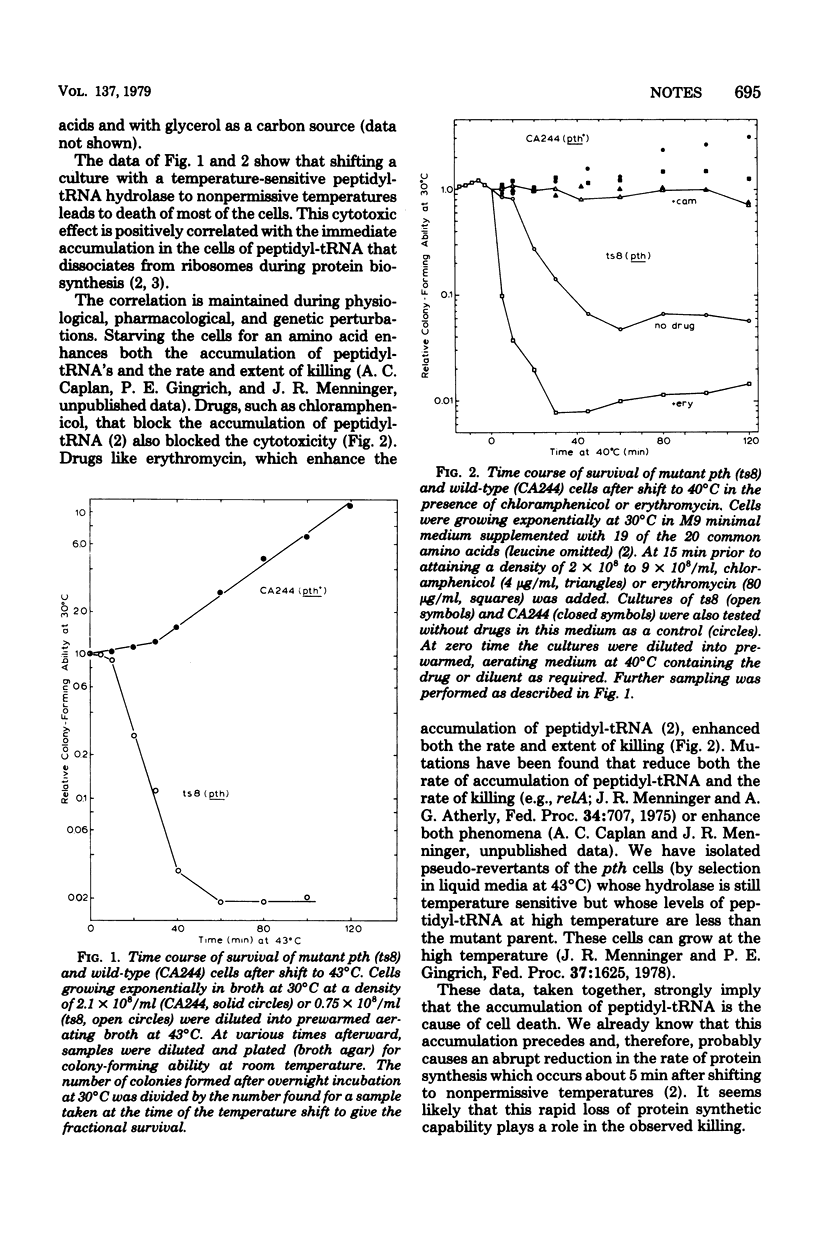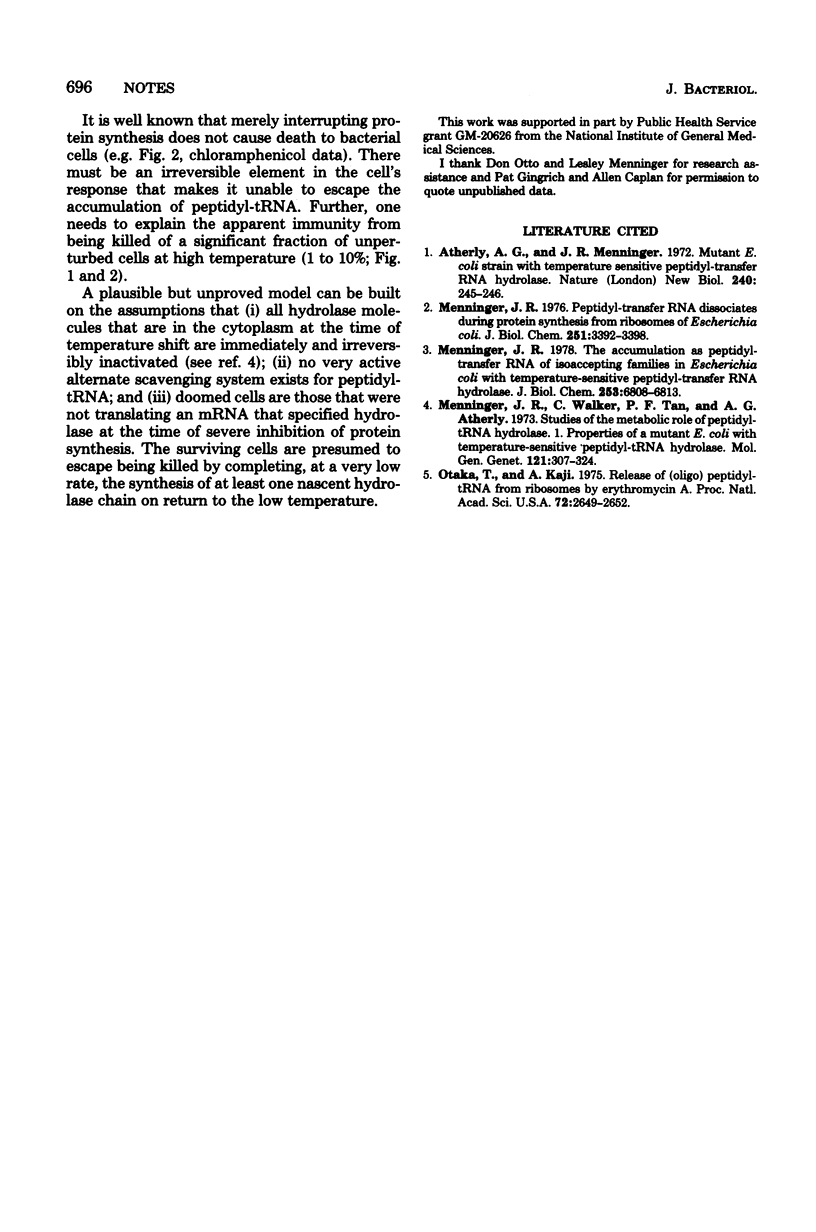Abstract
A mutant strain of Escherichia coli with temperature-sensitive peptidyl-tRNA hydrolase grows at 30 degrees C but, when shifted to 40 degrees C, dies at rates affected by physiological, pharmacological, and genetical perturbations. The rate of killing correlates with the relative accumulation of peptidyl-tRNA, suggesting that it is responsible for the death of the cells.
Full text
PDF


Selected References
These references are in PubMed. This may not be the complete list of references from this article.
- Atherly A. G., Menninger J. R. Mutant E. coli strain with temperature sensitive peptidyl-transfer RNA hydrolase. Nat New Biol. 1972 Dec 20;240(103):245–246. doi: 10.1038/newbio240245a0. [DOI] [PubMed] [Google Scholar]
- Menninger J. R. Peptidyl transfer RNA dissociates during protein synthesis from ribosomes of Escherichia coli. J Biol Chem. 1976 Jun 10;251(11):3392–3398. [PubMed] [Google Scholar]
- Menninger J. R. The accumulation as peptidyl-transfer RNA of isoaccepting transfer RNA families in Escherichia coli with temperature-sensitive peptidyl-transfer RNA hydrolase. J Biol Chem. 1978 Oct 10;253(19):6808–6813. [PubMed] [Google Scholar]
- Menninger J. R., Walker C., Tan P. F. Studies on the metabolic role of peptidyl-tRNA hydrolase. I. Properties of a mutant E. coli with temperature-sensitive peptidyl-tRNA hydrolase. Mol Gen Genet. 1973 Mar 19;121(4):307–324. doi: 10.1007/BF00433230. [DOI] [PubMed] [Google Scholar]
- Otaka T., Kaji A. Release of (oligo) peptidyl-tRNA from ribosomes by erythromycin A. Proc Natl Acad Sci U S A. 1975 Jul;72(7):2649–2652. doi: 10.1073/pnas.72.7.2649. [DOI] [PMC free article] [PubMed] [Google Scholar]


